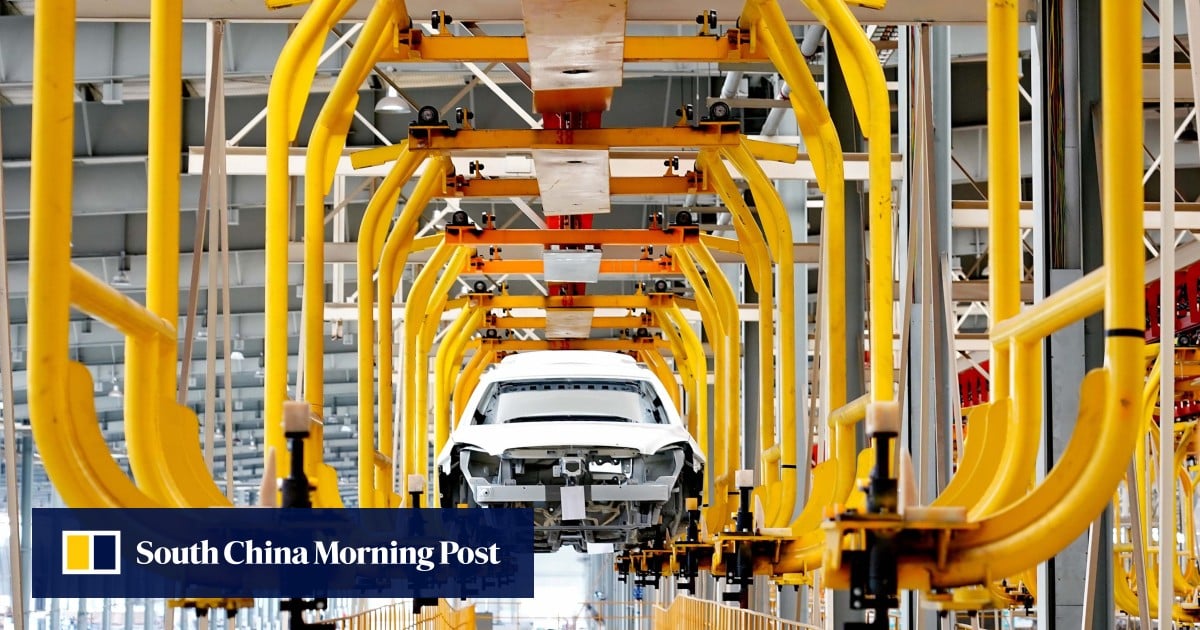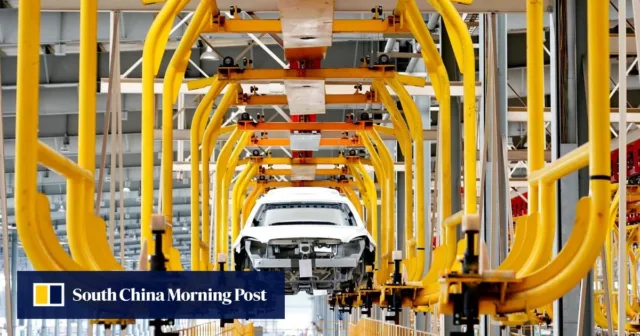
China has released a breakdown of the subsidy settlements for new-energy vehicle (NEV) companies from 2016 to 2020, along with the allocation plan for 2021 to 2022, and the data helps illustrate how the industry landscape shifted during those years.
Advertisement
According to data released by the Ministry of Industry and Information Technology (MIIT) earlier this month, over the seven years from 2016 to 2022, subsidies gradually moved from traditional state-owned enterprises to leading carmakers and emerging start-ups.
A total of 1.65 billion yuan (US$230 million) in subsidies was disbursed between 2016 and 2020. The Beijing Electric Vehicle Co. emerged as the biggest winner, receiving about 556 million yuan, or a third of the total. Meanwhile, BYD received only 15.74 million yuan, and Tesla, which first applied for subsidies in 2020, received 3.59 million yuan – each sum accounted for less than 1 per cent of the total.
The MIIT explained that several carmakers received less than their requested amounts due to non-compliant documentation or failure to upload required vehicle data. The subsidy plans for 2023-2024 have yet to be publicised.
From 2021 to 2022, a clear shift in subsidy distribution began to emerge. BYD’s Shaanxi and Shenzhen subsidiaries were allocated 37.91 million yuan and 35.56 million yuan, respectively, while Tesla’s Shanghai subsidiary received 30.15 million yuan. Stellantis-backed electric vehicle (EV) maker Leapmotor was the only start-up to receive subsidies, totalling 2.76 million yuan.
Advertisement
The data shows how subsidies increasingly favoured leading carmakers and select new entrants, signalling a transition from state-owned dominance to a more diversified market, said Zhou Lijun, director and chief researcher of auto industry analysis firm Yiche Research.
Authorities will dynamically adjust NEV subsidy policies, with subsidies expected to gradually decrease, according to Zhou.









